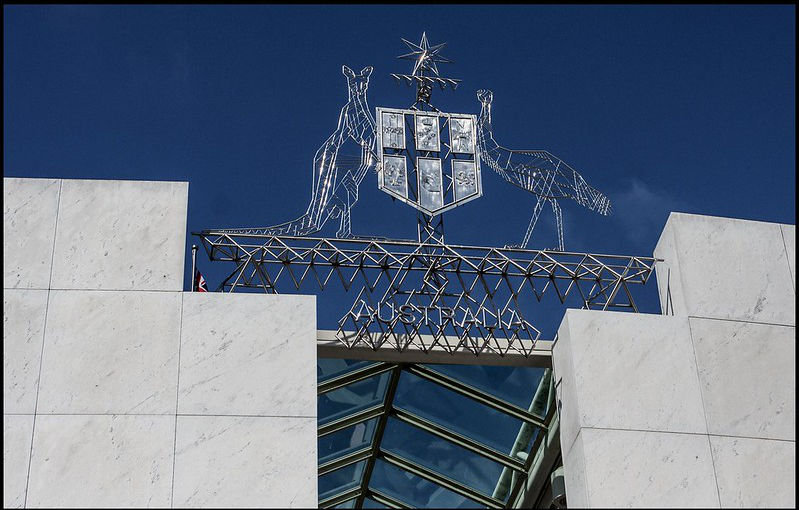Albanese scores a parliamentary goal
August 9, 2022
For many years, federal governments have done their best to reduce to the absolute minimum the number of days on which they have scheduled sittings of the Parliament.
They have done so because parliaments have generally proved to be difficult for them politically even when they have had comfortable majorities in the House of Representatives. Somehow, Oppositions were usually able to squeeze political capital from their rare opportunities to perform on the parliamentary stage.
The last fortnight, however, the first Parliamentary experience for the new Albanese Government, would have left Ministers mimicking Scott Morrisons forever rhetorical question and asking themselves, how good was that? and looking forward enthusiastically to a similar experience when Parliament meets again in September.
There were three major contributing factors. The first was that the government was in complete control of the agenda, including finding space for a non-government Bill (restoring legislative power to the ACT and the Northern Territory over matters such as euthanasia) to be debated and passed (on conscience votes) in the lower House a rare event.
The second was that the Greens after an intense internal debate decided to support the governments climate change legislation after the Prime Minister made it clear he would rather withdraw the legislation, while sticking to his 43 per cent emissions reduction target, than compromise with the Greens over a higher target.
There were some concessions to the Greens and the independents (not only the Teals), but they did not include any agreement with the main issues raised by the Greens, including its desire to halt future coal mines and gas projects. At one point the Leader of the House, Tony Burke, said of some of the amendments that were agreed to that the debate in the House actually mattered in the outcome. Wow! If true, its a long time since that has happened.
The third was that the Opposition Liberals and Nationals, under their new leader Peter Dutton, managed to make themselves utterly irrelevant. Not only that, they insisted on calling attention to their irrelevance by constantly demanding divisions on the climate change legislation so that their opposition to everything, including very sensible amendments by the Greens and independents to make the government more accountable and reliant on scientific advice in setting future targets, would be recorded for posterity. And they think their record will be for their benefit?
The Teals should be absolutely delighted with what they achieved. They can probably start campaigning for the next election already, telling their constituents about the way their amendments have improved the legislation and how recalcitrant the Liberals are.
It would be comforting to add a fourth factor, picking up on the Prime Ministers good behaviour platform for parliamentarians. Perhaps the temperature was a bit lower and there werent so many MPs shown the door for a day. Certainly the Speaker appeared to be far less partial than so many of his predecessors have been. But the general impression was that the Opposition was still in a state of shock and disbelief at how badly they had come out of the election. It seems it is too early for them to take any comfort from the fact that the Governments primary vote was less than it had ever been when it had held government in the past and that it would be reliant on the Greens to pass any legislation through the Senate that the coalition parties decided to oppose.
It also seems that Duttons early suggestions that the Liberals will move further to the right, rather than try to recapture those parts of the centre whose support it previously enjoyed, correctly captured the party-room mood. It was too uncompromising for Tasmanian MP Bridget Archer, who voted with the government on the main climate change bill. It seems Dutton is prepared to write off the Teal seats in perpetuity.
It is much too early to say whether this parliament will turn out to be better behaved, and to function better, than its recent predecessors. The televising of question time or rather, the fact that clips from the television coverage are available to broadcasters for use in the news and elsewhere creates a stage that few MPs can resist. The atmosphere during question time is confrontational and politicians who want to be noticed (by their colleagues as well as by voters) have few reasons to resist the temptation to exhibit their supposed talents.
Parliament is also increasingly diverse. It includes people who object to swearing allegiance to the Queen. Actually its difficult to reconcile the fact that everyone is required by the Constitution to do so with the fact that among the ranks of the government is an assistant minister for the republic, whose job it is to remove from the Australian constitution forever the Queen, her heirs and successors. Allegiance, or perhaps oath-taking, may have lost all meaning.
Behaviour by some parliamentarians that in the eyes of many is outrageous (black power salutes, not wearing a tie, expressing racist views) will continue, irrespective of the way parliament conducts its business.
Parliament will remain an important element in the Albanese Governments political armoury. There is a fundamental difference between the approach to parliament of this government and that of the Morrison government, namely, that this government has a large policy program that it needs to put in place with legislation that must go through the parliament. There was little that Morrison wanted to achieve by law-making. Because Albanese needs Parliament to achieve his agenda it will have to sit more often than has been the case in recent years. And he needs to tend his relations with the Greens, who ultimately will decide how much of it will be brought into effect.

